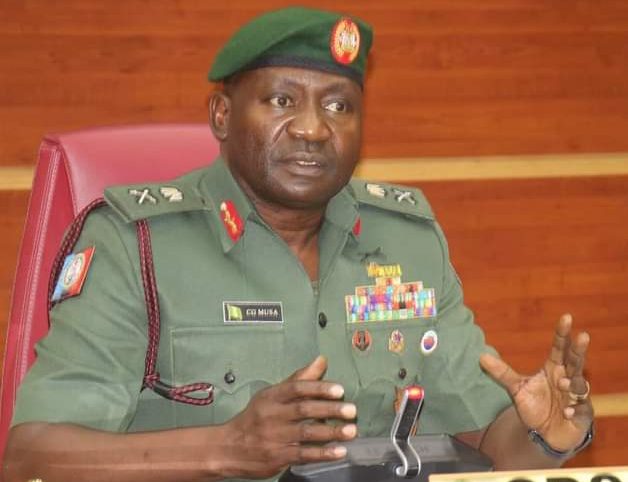
This is as against the 17 percent benchmark recommended by the United Nations.
The Chief of Defence Staff, Gen. Christopher Musa disclosed this On Thursday, at a one-day gender Mainstreaming Conference in Abuja.
Musa said there was a need to adopt a more realistic gender mainstreaming strategy to defend and protect women and children during a crisis as the country was facing an asymmetric type of insecurity.
Musa said, “As available record reveals Armed Forces of Nigeria have been able to attain 27.9 percent female participation in peacekeeping operations, surpassing the 17 percent recommended benchmark by the United Nations.
“These deliberate efforts by the military are in line with the United Nations Security Council Resolution 1325, mandating countries to develop their own action plans to identify, evaluate, and control efforts to achieve the objectives of Women, Peace, and Security.
“The UN Security Council Resolution 1325 was mooted to ensure women and societal security needs are safeguarded through increased emphasis on prevention, protection, and participation of women in military operations.
“Consequently, the asymmetric nature of current security challenges bedeviling us as a nation brings to bear the need for the military and other security agencies to adopt a more realistic gender mainstreaming strategy to defend and protect women and children who are the most vulnerable group of persons and victims of the consequences of security challenges.”
Musa, however, promised that the military under his watch would remain focused on championing gender-based doctrinal policies both in its operations and other engagements.
On her part, the wife of the president, Remi Tinubi said gender mainstreaming remains one of the potent ways to solve the insecurity facing the country.
Represented by the wife of the Vice President, Nana Shettima, Tinubu called for gender perception in the security policies and strategies of the country.
She said, “In our rapidly changing global landscape, security challenges have become increasingly complex and multifaceted from terrorism, cyber threats to climate change. The security of nations and individuals is constantly under scrutiny. Addressing these challenges effectively requires innovative and comprehensive approaches and gender mainstreaming stands as a powerful tool in our arsenal.
“In practical terms, what can we do to advance gender mainstreaming in our security efforts?
We first start by ensuring that gender perspectives are integrated into security policies and strategies.”
She said more women should be encouraged into the military and allowed to rise through the ranks.
On her part, the UN Deputy Secretary-General, Amina Mohammed, said active participation of women in the armed forces helps to better respond to their needs.
She said, “Gender mainstreaming is crucial to the peace process during and after conflict because it sits at the heart of our Sustainable Development Goals.
“Women are more likely to foster inclusive modes of governance and coexistence, more likely to build peace and silence against, and more likely to invest in sustainable development and a cornerstone of peaceful, prosperous communities and societies.
“Women’s active participation and leadership at all levels is essential to building an inclusive, responsive, and accountable armed forces that reflects the diversity of the community service and better response to their needs. “





